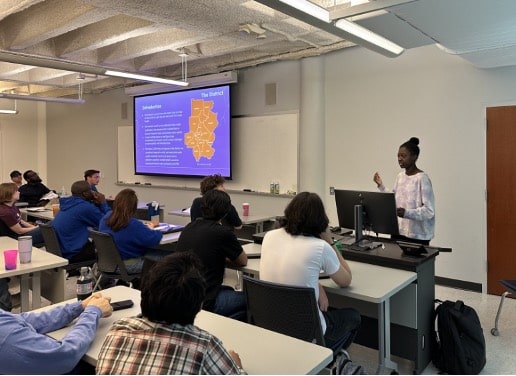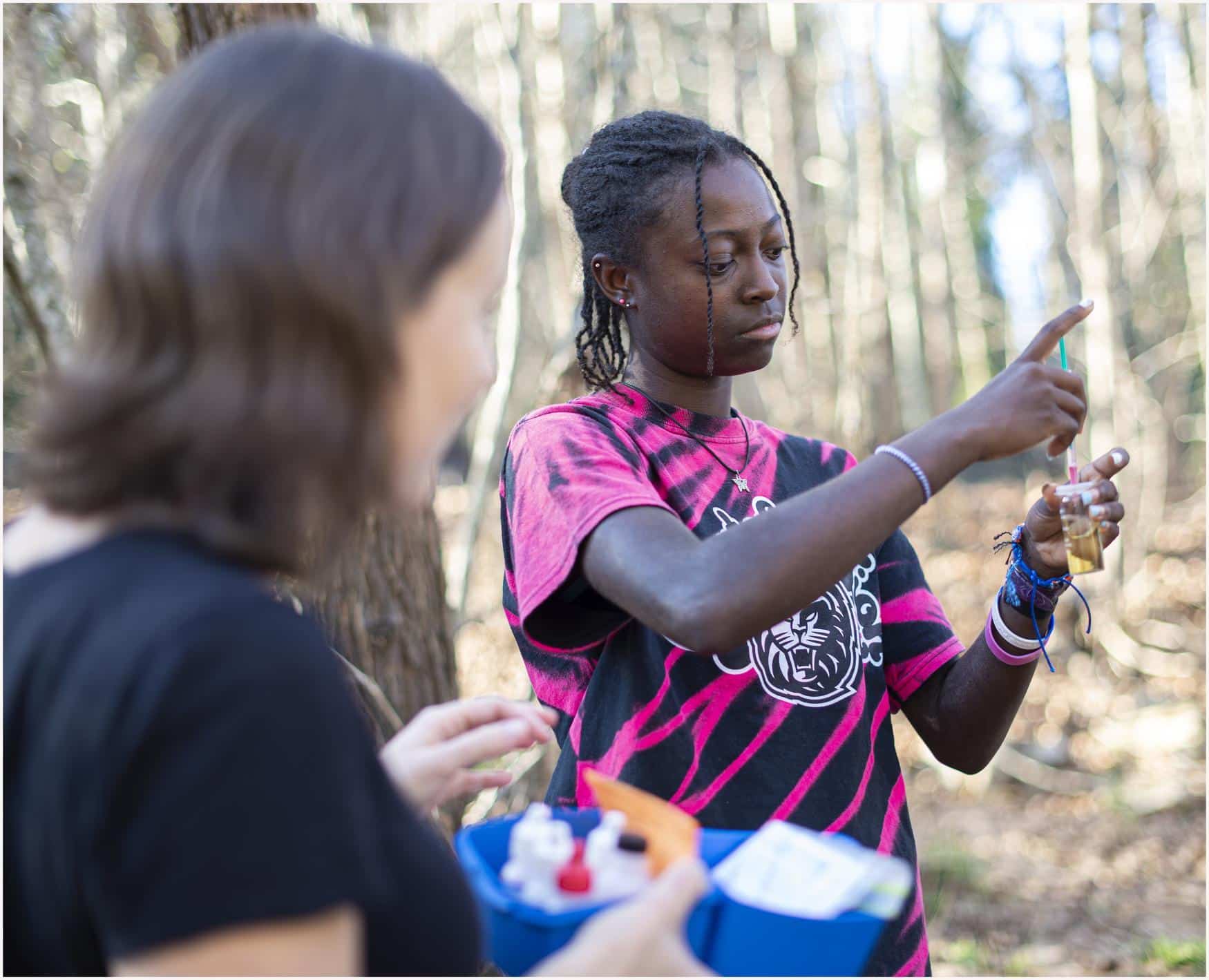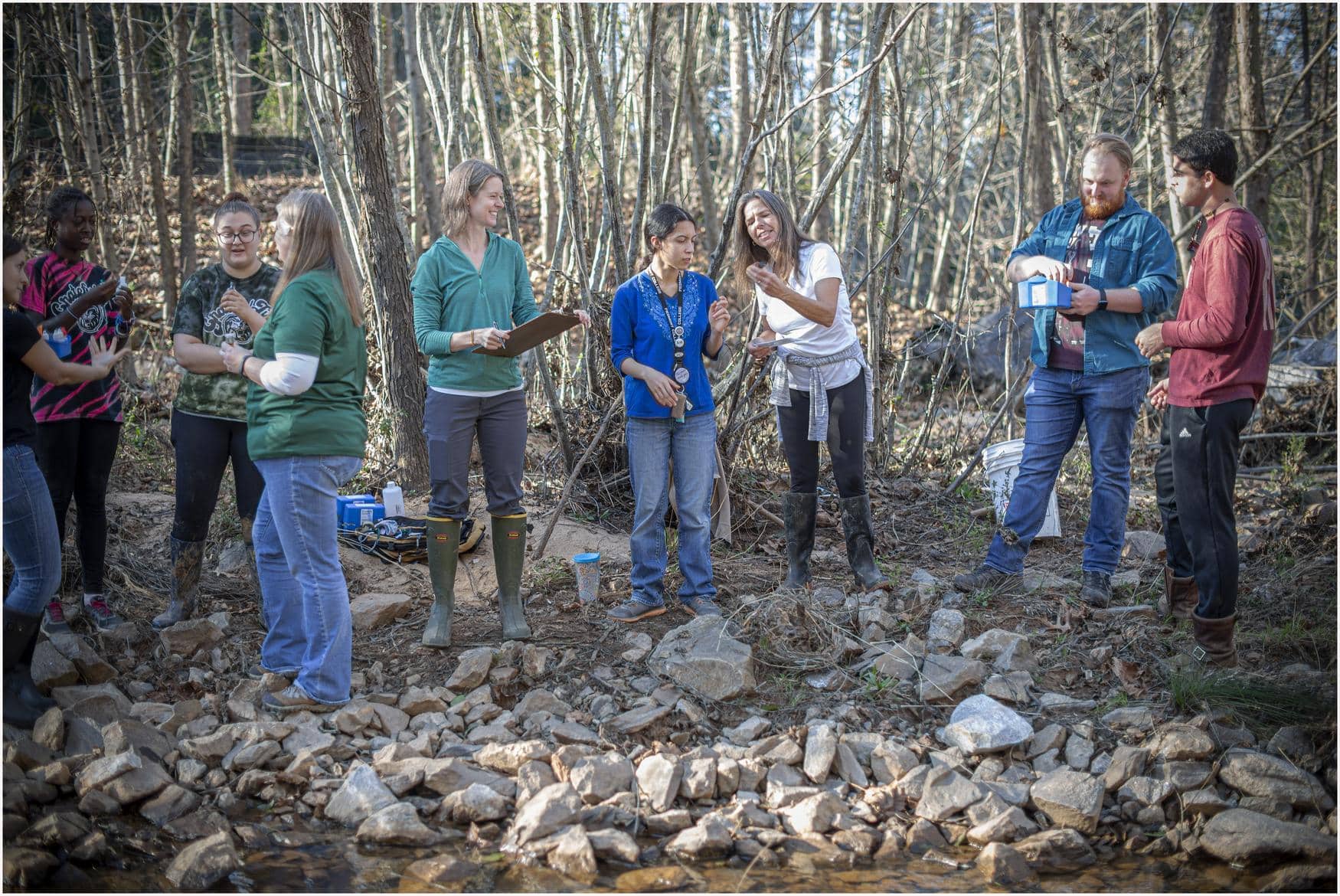Environmental Science
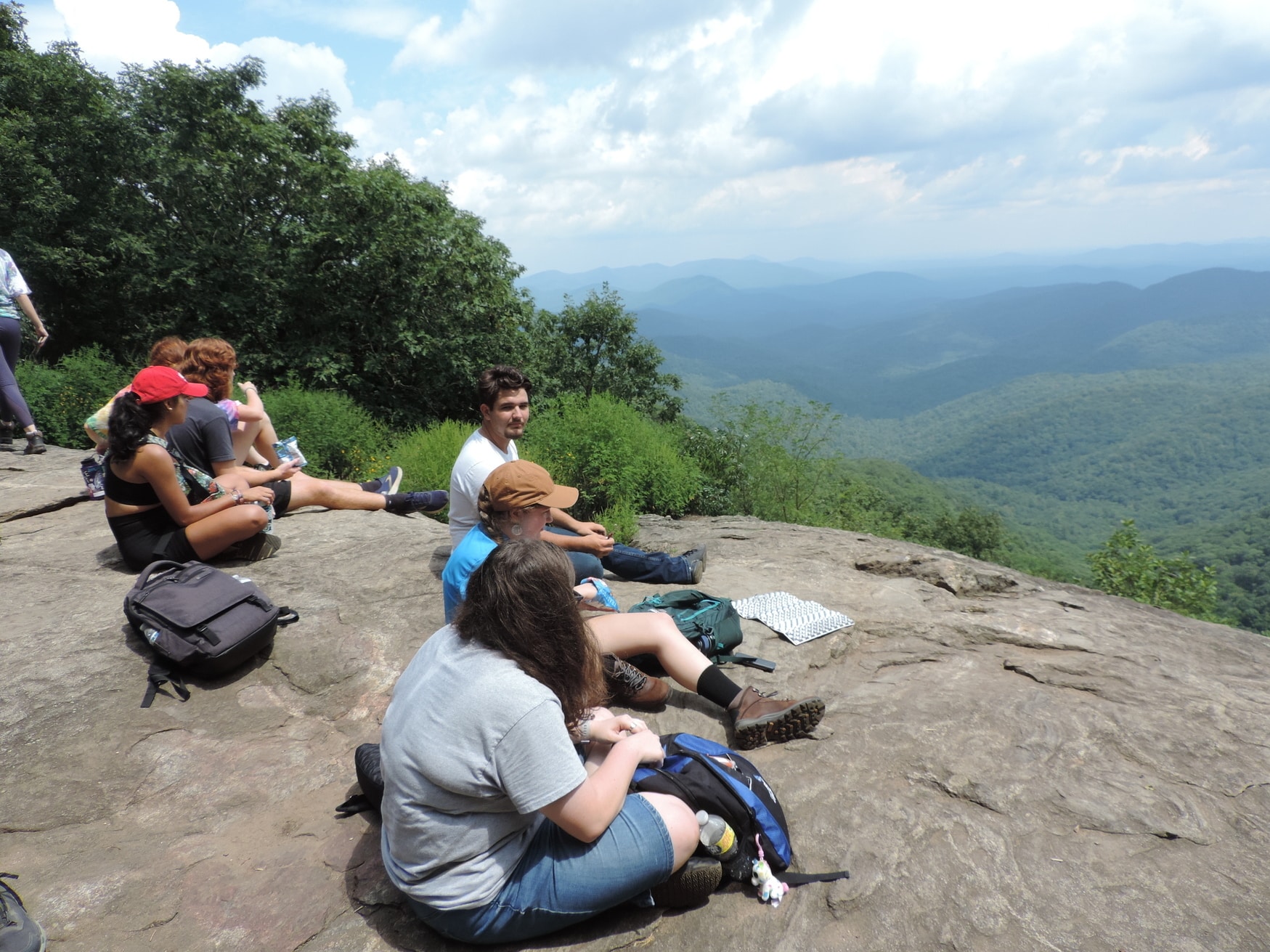

Why Pursue Environmental Science
The earth’s resources are finite, and the human population continues to grow. That basic fact is the reason why environmental science is a growing field of study, as scientists look for issues of resource use, environmental problems, and solutions to these problems from a scientific perspective.
At Piedmont University, we will teach you how to make the most of this interdisciplinary study by providing expertise in studies such as biology, chemistry, geology, and related scientific fields. The result is a graduate ready to help make the most of the resources we have available to us – and to find solutions to a mounting list of concerns that could be among the most important that mankind faces in coming years.

How a Piedmont Environmental Science Degree Helps You
An environmental science degree helps you understand the interactions between natural systems and human activity, equipping you with the scientific knowledge and analytical skills to address environmental challenges. It prepares you for careers in conservation, sustainability, environmental policy, research, and education, where you can make a meaningful impact on protecting the planet.
- Gain a working knowledge of a wide range of scientific studies, as well as an understanding of ethics, economics, and other social science disciplines.
- Gain satisfaction from pursuing a career designed to improve the lives of people across the globe.
- Set yourself up for a successful career in a growing scientific field.
- Build a base of knowledge that will serve you well across a multitude of careers.
Career Opportunities
An environmental science degree from Piedmont opens doors and a wide range of professional pursuits. For instance, our graduates have gone on to build successful careers in:
An environmental science degree prepares you for a career in soil science by providing a strong foundation in earth systems, chemistry, biology, and ecology, all essential for understanding soil formation, composition, and function. It also equips you with field and lab research skills to assess soil health, manage land sustainably, and address environmental issues like erosion, contamination, and agriculture productivity.
An environmental science degree prepares you for a career in solid waste management by teaching you about environmental regulations, waste composition, pollution control, and sustainable resource use. It also equips you with skills in data analysis, environmental impact assessment, and systems thinking to design and implement effective waste reduction, recycling, and disposal strategies.
An environmental science degree prepares you for a career in hazardous waste management by providing a strong background in chemistry, toxicology, and environmental regulations. It also equips you with the skills to assess risks, develop safe handling and disposal methods, and ensure compliance with environmental safety standards.
An environmental science degree prepares you for a career in air quality by teaching you about atmospheric science, pollution sources, and environmental regulations. It also develops your skills in data collection, monitoring technologies, and analysis to assess air quality, identify risks, and support strategies for cleaner, healthier environments.
An environmental science degree prepares you for a career in water quality management by providing knowledge in hydrology, chemistry, ecology, and environmental regulations. It also equips you with practical skills in water sampling, data analysis, and pollution control to monitor water systems and develop solutions for clean, safe water resources.
An environmental science degree prepares you for a career in land conservation by teaching you about ecosystems, biodiversity, and sustainable land use practices. It also equips you with skills in field research, geographic information systems (GIS), and environmental policy to help protect natural habitats and manage conservation projects effectively.
An environmental science degree prepares you for a career in water conservation by teaching you about hydrology, water management practices, and sustainability. It also equips you with skills in monitoring water use, identifying conservation strategies, and advocating for policies that protect water resources.
An environmental science degree prepares you for a career in fishery management by providing knowledge of aquatic ecosystems, fish biology, and sustainable fishing practices. It also develops skills in population assessment, conservation strategies, and policy enforcement to ensure healthy fish populations and aquatic habitats.
An environmental science degree prepares you for a career in wildlife management by offering insights into animal behavior, ecology, and conservation. It also equips you with research and monitoring techniques to manage and protect wildlife populations and habitats effectively.
An environmental science degree prepares you for a career in parks and recreation by teaching you about land management, ecosystem preservation, and outdoor recreation planning. It also helps you develop skills in park design, visitor management, and environmental education to create sustainable and enjoyable recreational spaces.
An environmental science degree prepares you for a career in forestry by providing a solid foundation in ecology, forest management, and sustainable land use. It also equips you with the technical skills to assess forest health, manage timber resources, and protect forest ecosystems from threats like pests, diseases, and climate change.
An environmental science degree prepares you for a career in environmental education by giving you the scientific knowledge of environmental issues and the teaching skills to engage and inspire learners. It also helps you develop curriculum and communication strategies to promote environmental awareness and sustainability.
An environmental science degree prepares you for a career in environmental communications by combining scientific understanding with media and public relations skills. It also equips you with the ability to convey complex environmental issues to diverse audiences through writing, social media, and advocacy campaigns.
An environmental science degree prepares you for a career in planning by teaching you about sustainable development, land use, and urban planning principles. It also equips you with skills in environmental impact assessments, zoning laws, and policy analysis to help design environmentally responsible and livable communities.
An environmental science degree prepares you for a career in environmental law by providing a foundation in environmental regulations, policy, and science. It also equips you with analytical skills to understand legal frameworks, advocate for environmental protection, and work on cases related to land use, pollution, and conservation.
More About Environmental Science
Learn more about Environmental Science and the variety of options available to you as a Piedmont student.
As environmental science is an interdisciplinary study, Piedmont University students must complete a wide range of course work – in addition to the broad-based liberal arts requirements that all our students undertake. Included in our curriculum are courses involving environmental science, geology and geographical information systems, biology, chemistry, physics, and humanities/business.
Environmental scientists have one of the most important jobs in modern science – making the world a better and cleaner place for mankind to inhabit. That is why our professors focus on the natural environment and how humans use natural resources. A scientific understanding of the interaction between humans and the environment is crucial to issues of resource use, including resource management, environmental pollution, and finding solutions to environmental problems.
Because of the growth of human populations worldwide and increasing global awareness of the importance of the environment, environmental science is one of the most rapidly growing academic fields. Similarly, career opportunities in the environmental field and opportunities for graduate studies are becoming increasingly abundant. This major is specifically designed to prepare students for these opportunities. And at Piedmont we will ensure that you gain both real world experience, as well as an academic understanding that will help you prepare for postgraduate opportunities.
My name is Imani Vincent, a recent 2023 graduate of Piedmont University. I graduated with an Environmental Science degree under the mentorship of Debra Dooley and the Natural Science Department. Attending Piedmont University prepared me for graduate school by offering a solid foundation of knowledge and research opportunities that increased my confidence as a researcher. Through diverse coursework, research projects, and the chance to present at Piedmont symposiums, I developed critical thinking, data analysis, and presentation skills. These experiences collectively fostered my ability to stand on my own as a Graduate Assistant in the Geosciences Department at Georgia State University.
Related Programs
Intrigued by Environmental Science? You might also be interested in one of these programs:

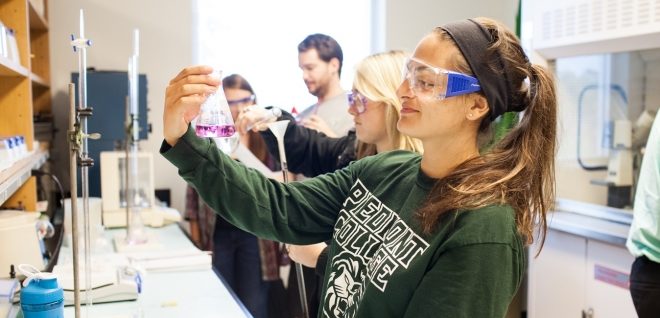
Where do I start?
To begin your journey toward becoming an Environmental Science student at Piedmont University, you can start by applying today! Or, schedule a campus visit and meet with admissions and financial aid advisors, as well as faculty members in the Arts & Sciences department.

